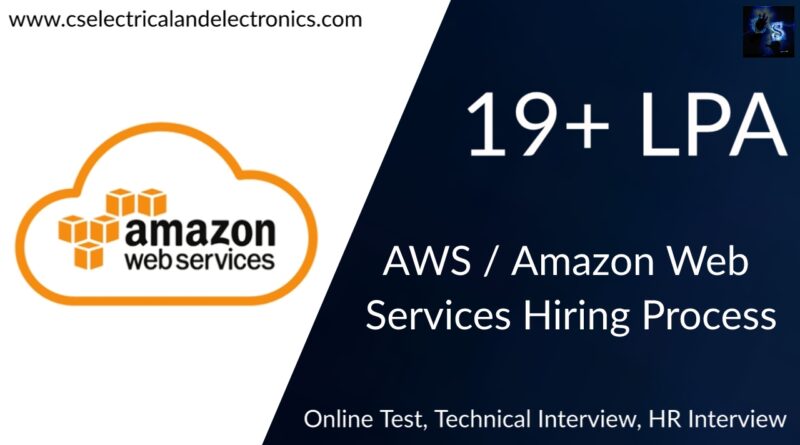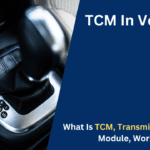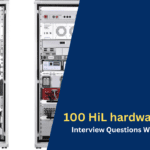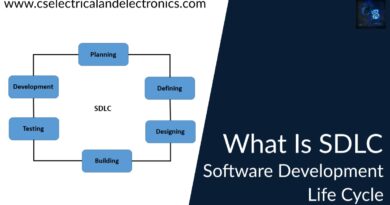Amazon Web Service, AWS Hiring Process, AWS Interview, 19+ LPA
Hello guys, welcome back to my blog. In this article, I will discuss the amazon web service hiring process, AWS hiring process, AWS interview questions, technical interview questions asked at amazon, AWS online test questions, etc.
If you have any doubts related to electrical, electronics, and computer science, then ask question. You can also catch me @ Instagram – Chetan Shidling.
Also, read:
- Cerium System Hiring Process, Online Test, Technical, HR Questions
- Siemens Healthineers Hiring Process, Technical Interview Questions
- KPIT Hiring Process For EE, EC, & AR, Online Test, Interview Questions
AWS Hiring Process
About the AWS
Amazon is the global leader in e-commerce. It has a history and tradition of leading the world in Web-related technologies and services. Amazon operates sites in Australia, Brazil, France, Germany, India, USA and maintains dozens of fulfillment centers around the world.
AWS provides developers and small to large businesses access to the horizontally scalable state-of-the-art cloud infrastructure. Amazon India works on complex business challenges to innovate and create efficient solutions that enable various Amazon businesses, websites, digital products, services, etc. Now, let’s start with the AWS Hiring Process.
Eligibility Criteria
01. Eligible branches : ECE ,CSE, E&E, MTech CSE, MCA.
Eligibility Criteria :
- B.E CGPA:6.5 and above with no current Backlogs.
- No restriction on 10th, 12th, or Diploma Scores.
02. Job Profile: AWS Cloud Support Associate.
03. Work Location: Bangalore and Hyderabad.
04. Total Compensation: 19lpa (includes RSU and Joining Bonus).
05. 6-month Internship Program with a stipend of INR40000.
Preferred Qualifications
01. Basics in OS concepts / Linux/Unix Systems administration (Ubuntu, CentOS, RedHat, Solaris, etc).
02. Programming/scripting experience (Java, Perl, Ruby, C#, and/or PHP).
03. Basic knowledge in Networking (TCP/IP, DNS) /Database.
04. Exposure to Cloud computing.
Basic Qualifications While AWS Hiring Process
01. 0-1 year of experience in Linux/Windows systems administration, database design, and optimization.
02. Data analysis, network administration, and DevOps.
03. Bachelor’s Degree in Engineering in one of the branches (CSE/IT/ECE/EEE) or MCA with an aggregate of 65% overall.
04. Excellent oral and written communication skills.
05. Strong customer focus & Multi-tasking skills.
06. Self-starter who is excited about technology.
07. Troubleshooting/Support experience.
Recruitment Process
Consists of 4 rounds.
01. Online test
02. Technical round 1
03. Technical round 2
04. HR Round
01. Online test While AWS Hiring Process
a. Video-based questions – 1 Hour
(Scenario will be explained in a video and questions will be asked based on this. You have to choose what you feel is more appropriate.)
b. 20 Technical questions – No time limit.
(majority of questions were on Networking, Database, OS, AWS services.)
The First Round of the process is the online round which consists of 4 subparts. Duration was 90 mins.
1st subpart – Real-Time Implementation of Work Environment where graphs regarding server details and other information are provided and the candidate is given a workflow based on which the candidate must take further decisions on how to troubleshoot the assigned problem, questions regarding priority assignment and Troubleshooting are the major part of this round.
2nd Subpart – 20 MCQ’s on Networking Concepts like HTML, TCP/IP, and other basic concepts.
3rd Subpart – Adding Information regarding subjects and software’s that the candidate is comfortable using with a scale rating the depth of knowledge in the respective field. (Be honest about the subjects that you select and the scale at which you rate yourself during this process).
4rth Subpart- Behavioural Questions assessing your problem solving and pressure handling skills based on your personality (Answer according to amazon’s 14 principles).
No negative marking for any section, the first round is also the most important where most candidates applying are filtered for further interviews. (Out of 650+ applicants only 33 were selected for further rounds and 10 (3 ECE and 7CSE )students were selected for the role).
02. Technical round 1 Questions While AWS Hiring Process
I will share different technical questions asked for students from different branches.
Inputs From Student 01 For AWS Hiring Process
01. Explain the Boot process of Windows.
02. What is memory pages.
03. Difference between 32 bit and 64-bit windows.
04. Show the disk partition on your computer.
05. What is an open-source OS.
06. How to reset password.
07. Show task manager on your computer and explain what it signifies.
08. What will you do when a website is down but you want to access it still.
09. Some electronics concepts.( Basic gates and K-Maps).
10. Explain the logic to find a missing number in a given set of numbers.c
Inputs From Student 02 For AWS Hiring Process
The First Technical Round was based on LINUX/Windows OS (Option to choose between one was provided, I chose to go with LINUX), LINUX commands used for Troubleshooting and file operations, Coding Questions(You will be asked to rate yourself on a scale of 10 and based on your answer the difficulty of the question will be decided) and I was also asked one aptitude problem.
The Interviewers are very nice and make sure that a comfortable environment during the interview is created to allow the candidate to perform his/her best.
The answers you provide decide the flow of the interview (Each question is layered and will have multiple follow-up questions along with it based on real-time examples).
The Approach to the problem matters and follow-up questions are appreciated.
Questions asked
01. Tell me about yourself.
02. I worked on a project related to networking and further discussion regarding it occurred where I had to explain the project and also was asked to write the code that I wrote to synchronize two machines on the network (Be very thorough with your project and its complete working along with code).
03. What is Paging and what is demand Paging.
04. What is Fragmentation and its types (Internal and External Fragmentation and its explanation).
05. What are some real-time examples of processes and threads and differences in them.
06. What is the configuration of your laptop.
05. If I wanted to buy a Laptop what questions would you ask me?
06. What is the clocking speed of the processor.
07. Troubleshoot booting process (Blue Screen of Death).
08. What is an active directory.
09. What is the use of Netstat and Vmstat command in LINUX.
10. I used VM ware in my project and was asked questions regarding it (Performance Drop while using the virtual machine and why it occurs).
11. Questions on Virtual Memory and its uses.
12. Troubleshoot a situation where the performance of your Linux system dropped.
13. Asked to rate myself in coding (I rated myself 7).
14. Reverse a Linked List.
15. Find the middle of the Linked List without using a counter/pointer.
The approach to code is of more importance than the actual code itself make sure to make an attempt to understand and solve the code step by step, the code does not need to be executed but is to be written on a paper so the syntax does not matter but the code that you write matter if you are unable to write the codeshare your understanding regarding it and try to write the algorithm/pseudocode or an innovative approach to the code.
16. One Aptitude Question – If there are 12 marbles all of the same shape, size, and color with one of them being slightly heavy and you have an old-fashioned weighing machine, find the heavy marble in 3 steps and share your understanding regarding the problem.
Operating System Questions
17. OS boot process (Win/Linux).
18. Memory management; Memory pages; Buffer and Caches, Basic commands.
19. System date/time management, network time protocol. u
20. Managing Users and groups.
21. File permissions.
22. Managing software’s – installation, uninstallation, upgrade, etc.
23. Managing system services and background processes.
24. Remote management of a system – SSH, RDP, etc.
25. Network protocols – FTP, HTTP (web servers), SMTP (mail server).
26. System automation – cron, batch jobs, windows startup tasks.
Troubleshooting
27. System performance – CPU, DISK, memory, and network.
28. System Login issues.
29. System booting issues.
30. System logs.
31. Network connectivity issues.
Inputs From Student 03 For AWS Hiring Process
Taken by 2 interviewers.
01. Introduce yourself.
02. I was asked if I was comfortable in Windows or Linux Operating Systems, I choose Linux.
03. Booting Process in Detail.
04. What is a kernel and the job of the kernel?
05. What are runlevel programs?
06. Booting Process troubleshooting.
07. What is init?
08. What is a zombie process and an orphan process?
09. What is a fork?
10. What is a child’s process?
11. What is context switching?
12. Differentiate between a process and a thread.
13. Give real-time examples of process and thread.
14. What is memory management?
15. What are secondary memory and primary memory?
16. The size of your RAM is 4GB and HDD of 8GB and you want to run a program of 12GB. Is it possible? If yes, how? (Answer- No)
17. The size of your RAM is 4GB and HDD of 15GB and you want to run a program of 12GB. Is it possible? If yes, how? (Answer- Virtual Memory)
18. Explain the Process life cycle or Process States.
19. What are internal and external fragmentation?
20. How to solve the problem of fragmentation?
21. What is paging and why is it required?
22. Does paging suffer from fragmentation? If yes, which and why?
23. What are the drawbacks of paging?
24. What is the Unix command for knowing the disk Free space, CPU state, and a number of context switches ( vmstat command ).
25. What is wait()?
26. Difference between Multithreading and MultiProcessing.
27. I was asked if a processor with 4 threads will perform better or worse than a processor with no threads.
28. When is a system CPU bound and memory-bound?
29. What is starvation and can it be solved?
30. Programming question 1: Swap two integers without using any extra variable.
31. Programming question 2: Code to rotate bits of a number.
32. List all the layers of the OSI model.
33. Explain what happens when www.amazon.com is clicked.
34. Explain DHCP DORA Process.
35. Asked me if I had any questions for her.
Inputs From Student 04 For AWS Hiring Process
It was a technical round involving mostly Operating Systems and troubleshooting concepts. It went for about 45-50 minutes.
01. Tell me about yourself which is not mentioned in your resume(non- technical).
02. What happens when we turn on the computer(Boot process in detail).
03. If you have a 4GB Ram laptop and want to play a game of 8GB will that be possible?
04. Questions on memory management and Virtual memory in detail.
05. Explain internal and external fragmentation.
06. What is demand paging?
07. If there are multiple applications open in the system, are they identified as processes or programs?
08. Different states of a process.
09. If you want to buy a new laptop what specifications would you look for? (w.r.t RAM, cores).
10. In a newly bought laptop, disk partition is not done. Should it be partitioned or not? Why?
11. Questions on Linux commands like changing file permissions, adding users, CPU utilization, etc.
12. Questions on threads in Java.
13. The system is slowing down due to multiple applications running in the background, how do you troubleshoot it?
14. Troubleshooting questions like when desktop hangs.
15. Programming question – ‘Reverse the words of the string’.
16. Questions will be asked based on your answers.
Inputs From Student 05 For AWS Hiring Process
01. Basics Of OS.
- File Systems.
- Permissions and User Management.
- Memory management and Process Management.
02. Page Replacement and Virtual memory.
03. Boot Process.
04. Threading vs Parallel Processing.
05. On a single thread CPU which will perform better 1. Single-Threaded Application or 2. Multi-Threaded Application.
06. Suppose your laptop is slow what is the first thing you check and how do you fix it.
07. Explain the difference between Paging and Segmentation.
08. How does your CPU translate Logical Address to Physical address.
09. Explain Demand Paging, and Least Recently Used paging and which one is better.
10. After This I was asked Programming Questions:
- Swap 2 variables without using a temp variable.
- Sort Linked List.
- For Both questions no time constraint.
11. From here On there were some questions on my project.
03. Technical round 2 Questions While AWS Hiring Process
Inputs From Student 01 For AWS Hiring Process
01. The questions in this round were mainly on networking and troubleshooting.
02. OSI architecture.
03. Difference between OSI model and TCP/IP model.
04. Difference between router and switch.
05. Difference between Private IP and Public IP.
06. Port and Port numbers.
07. NAT process in detail.
08. TCP handshake process.
09. HTTP vs HTTPS.
10. What is SSL/ TSL.
11. SSL handshake process.
12. What is encryption/ decryption.
13. Algorithms on the same.
14. How keys are generated in encryption algorithms.
15. What is an SSL certificate?
16. How to check if a website is reachable or not?
17. Questions on the output of ipconfig. Ex: IPv6 address, Mac address, subnet mask, gateway.
18. I was asked to show the output of the ping utility command and again questions were asked on it.
19. How to check hop-to-hop connectivity?
20. About DNS server and nslookup command.
21. Again, the succeeding questions will be based on the answers you give.
Inputs From Student 02 For AWS Hiring Process
01. I was asked to rate myself in networking.
02. What happens when we type any URL in the browser?
03. How do DNS works?
04. Different Types of DNS records?
05. Zoning in DNS?
06. Why do we have a different public IP when we are on Mobile Data? (ans: DHCP).
07. DHCP leasing concept?
08. How only the DHCP server is able to read the DCHPDISCOVER packet when it is a broadcast?
09. Difference Between MTU and MSS.
10. Fields in TCP header.
11. Explain Flags in TCP header.
12. Importance on Seq No, Ack No, and Window Size.
13. Explain UDP.
14. Difference Between UDP and TCP.
15. Which one is better when and why?
16. Scenario Based questions were asked I was asked to troubleshoot.
- I am not able to connect to a specific website on a browser but I am able to ping it ? (Clear browser cache for old DNS).
- I am not able to connect to any website? (DNS error).
- I am not able to access a specific website on both browsers and through ping? (Website is blocking our IP use another network).
Inputs From Student 03 For AWS Hiring Process
01. Difference between router, switch.
02. What is a Broadcast Domain?
03. DHCP DORA process.
04. DNS – detailed explanation.
05. TCP three way handshake process.
06. MSS/MTU.
07. What happens when you type amazon.com.
08. Explain the OSI layers and protocols in each layer.
09. Where is TCP and UDP used.
10. Explain ICMP protocol.
Inputs From Student 04 For AWS Hiring Process
The 2nd Technical Round was completely based on networking.
01. What is the process that happens in the backend when you enter amazon.com in a browser (DHCP, DNS, TCP, HTTP explain the entire flow in detail).
02. What are the commands used to obtain the DNS server IP(nslookup/DIG/ipconfig command).
03. Share screen and open command prompt and explain the output of nslookup and ipconfig command).
04. Open Paint and explain how your home network functions ( Router communication using public and private IP and how our systems connect to the Internet and NAT protocol, DHCP and DNS with IP and MAC examples and multiple follow up questions on every answer provided).
05. Explain the DHCP DORA process in detail.
06. Explain NTP, ICMP, ARP protocols.
07. Devices used in every Layer.
08. Explain the TCP/IP model.
09. Which is the most innovative solution that you came up with to overcome a hurdle and achieve a major breakthrough.
Suggestion – Make sure you know examples regarding the protocols you talk about and understand their functioning as questions are based on real-time examples and aren’t direct (tweaked according to a situation).
Other Important Topics for Round-II
Networking
10. Difference between router, switch.
11. What is a Broadcast Domain?
12. DHCP DORA process.
13. DNS – detailed explanation. TCP/UDP and why?
14. Subnetting.
15. MSS/MTU.
16. Complete flow when you trigger amazon.com.
17. OSI model with complete details and protocols on each layer.
18. TCP and SSL handshake.
19. Difference between TCP/UDP, examples
20. Flow/error control.
21. OSI Model.
Inputs From Student 05 For AWS Hiring Process
01. Explain the OSI architecture in detail.
02. During online video calls we sometimes experience issues why does that happen? (UDP and packet loss in UPD).
03. There is a new node and it wants to send data.
04. What is the first thing it should do? (DHCP ).
05. Explain the working of DHCP architecture.
06. Explain the DORA process.
07. ‘Discover’ message can be sent by how many servers?
08. Why is the ‘Offer’ message broadcasted not unicasted?
09. What happens when you enter a website address in a browser. ( Start with DNS and then how an HTTP request is made, explain encapsulation at client-side and decapsulation at server-side).
10. Then I was given an IP address 127.0.0.1 was asked what are things can I tell about the IP. (Class of the IP address, its Loopback address).
11. She gave me 2 IP addresses and asked me to find if they belong to the same or different network.
12. Role of the Router in the separation of Broadcast Domains.
13. DNS Query Process.
14. What are ports and port numbers for HTTPS, SMTP, etc.
15. Do different tabs making queries in the browser use different port numbers and different threads?
16. TCP handshake in detail.
17. What is the command used for DNS (dig command).
18. What is subnetting.
19. There are 2 machines M1 and M2 belonging to 2 different networks and M1 wants to connect to M2. How?
20. What is ARP protocol and how it works?
21. How does the router use its forwarding table to forward its packets to the other network?
22. What is NAT and why is it required?
23. A few questions on troubleshooting network(Ping and Tracert/Traceroute commands).
24. The detailed working of the Tracert command.
25. What is the difference between private and public IP addresses?
26. Which of the above is fixed and which is reusable?
27. What is PAT?
28. You are unable to open a website. How will you troubleshoot it?
29. What does a firewall do?
30. What is the IP address of www.google.com?
31. Asked me to explain one of my projects and what were my contributions to it?
32. Asked me if I had any questions for him.
04. HR Round Questions While AWS Hiring Process
Inputs From Student 01 For AWS Hiring Process
01. How was your day?
02. Tell me about yourself.
03. Tell me about your projects.
04. Tell me about a time when you handled a project with tight deadlines.
05. Tell me about a time when you helped your teammate who was struggling with the completion of work.
06. Tell me about a situation when you failed a deadline. Alternate ways in which you could have handled it.
07. How do you communicate with the different stakeholders of the project about risks or difficulties involved.
08. Tell me about a time when there was an obstacle while working on your project. How did you handle it?
09. Tell one situation where you helped your friend who was struggling because of any issues.
10. Tell me about one situation where you received critical feedback. How did you work on yourself to overcome it?
11. How would you explain about cloud to someone who is completely unaware of it in layman terms.
12. Have you done any courses on AWS?
13. Do you have any questions for me?
Inputs From Student 02 For AWS Hiring Process
01. About myself and family.
02. Why CSE and Why BVB?
03. What are the projects that taught me something?
04. Has there be any project where you struggled with a timeline? How did you manage it?
05. Has anyone given you any negative feedback? How did you handle it?
06. What did you do during a lockdown?
07. Outside college anything you have taught yourself?
08. If someone in your group is struggling with a project, how do you handle him?
09. If someone in your group is lazy and doesn’t want to do the project, how do you handle him?
10. If you have some personal obligations and a project deadline is also coming how do you proceed?
Inputs From Student 03 For AWS Hiring Process
01. Questions based on the projects mentioned in the resume. (They just try to know how you handled the project rather than technical stuff).
02. Given a scenario, how would you react to it.
03. What are extra courses or activities have you taken up other than the core subjects.
(I explained to them about the TIST Minor Program that I’m doing which involves the social and team members from different departments. They seemed to be very much interested in it and the discussion went on for 20 – 25 minutes. This is because they had many questions regarding the soft skills I acquired).
04. Who is the CEO of Amazon.
05. How would I adjust to the IT sector as I’m from an Electronics background.
06. Do you have any questions to ask.
Inputs From Student 04 For AWS Hiring Process
Questions in the Managerial Round are to be answered according to the STAR format(Situation/Task/Action/Result ) Try bringing the amazon leadership principles in your answer as much as possible indirectly.
01. Tell Me about yourself.
02. Asked me regarding my projects (1st year Engineering Exploration Project).
03. Assume there is a weak link (member) in your team how will you act in this situation.
04. Tell me about a time where you had to make a submission within a very tight deadline.
05. Tell me about a time where you received critical feedback and how it changed your life.
06. I published a paper regarding my project in IJRASH and was asked to talk about the experience.
07. Was asked to talk about my time at the University of Massachusetts during the student exchange program.
08. How would you help a friend that is depressed/stressed.
09. It was mentioned in my resume that I participated in the AWS Enabler Webinar Series and was asked questions regarding the instances I learned during the series).
Suggestion – Take your time to come up with a solution in accordance with the question asked and don’t rush to answer (try talking about situations that are a part of your personal experience so that you are comfortable talking about it and try talking about your extracurricular examples than talking about your projects to leave a lasting impression).
Inputs From Student 05 For AWS Hiring Process
01. Introduce Yourself.
02. How was my day?
03. How were my previous rounds?
04. Explain my minor project.
05. Explain something innovative I added to the projects.
06. Tell me about a time when you handled a task within tight deadlines.
07. Tell me about a time when you failed a deadline.
08. Asked me whether I have worked on any project in which I tried hard but failed to complete it and what were the consequences?
09. Asked me to describe myself in 1 line.
10. Courses I did on my own and it wasn’t taught in college and why did I go for it?
11. What other skills do I have apart from technical skills?
12. Tell me about a time when you did something out of your comfort zone.
13. Tell me about a time when you had to take critical feedback.
14. Tell me about a time when you didn’t get the solution even after putting in the effort.
15. Did you ever ask your peers/seniors for help when you were stuck.
16. How adaptable are you with entering the Networking sphere. (As most of my projects were in ML).
17. Discuss a time when one of your peers struggled and you helped them out.
18. Questions for him.
AWS Hiring Process Suggestions For You
01. Go through the list of topics to prepare sent by HR.
02. Be thorough with your projects.
03. Keep in mind 2 or 3 technologies you are interested in working on.
04. Answers the questions asked in the interview in STAR format(Situation, Task, Action, Result).
05. Make sure your computer networking, OS, and Linux basics are strong and you’re good at programming.
06. Study more on the company, role, and leadership principles.
07. Be confident.
08. GOOD LUCK!!
This was about the ” AWS Hiring Process “. I hope this article ” AWS Hiring Process ” may help you all a lot. Thank you for reading ” AWS Hiring Process “.
Also, read:
- Accenture Hiring Process For ASE And FSE, Technical Questions, HR
- Amazon Web Service, AWS Hiring Process, AWS Interview, 19+ LPA
- AWS Technical Interview Questions, Top 200+ AWS Questions
- Cerium System Hiring Process, Online Test, Technical, HR Questions
- Cognizant Hiring Process, Eligibility Criteria, Oline And Technical Questions
- Continental Hiring Process, Continental Interview Questions
- Cypress Semiconductor Hiring Process For EE, EC Engineers
- Deloitte Hiring Process, Online Test, Deloitte Technical Interview Questions
Author Profile
- Chetu
- Interest's ~ Engineering | Entrepreneurship | Politics | History | Travelling | Content Writing | Technology | Cooking
Latest entries
 All PostsApril 19, 2024What Is Vector CANoe Tool, Why It Is Used In The Automotive Industry
All PostsApril 19, 2024What Is Vector CANoe Tool, Why It Is Used In The Automotive Industry All PostsApril 13, 2024What Is TCM, Transmission Control Module, Working, Purpose,
All PostsApril 13, 2024What Is TCM, Transmission Control Module, Working, Purpose, All PostsApril 12, 2024Top 100 HiL hardware in loop Interview Questions With Answers For Engineers
All PostsApril 12, 2024Top 100 HiL hardware in loop Interview Questions With Answers For Engineers All PostsMarch 22, 2024Driver Monitoring Systems In Vehicles, Working, Driver Sleepy Alert
All PostsMarch 22, 2024Driver Monitoring Systems In Vehicles, Working, Driver Sleepy Alert








